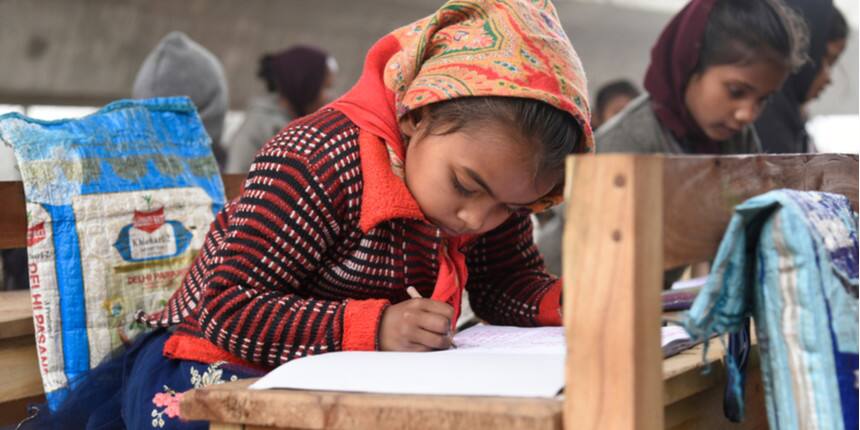Union Budget 2022: Need to raise budget for girls’ education, says women’s group
Sheena Sachdeva | January 18, 2022 | 04:00 PM IST | 4 mins read
The Feminist Policy Collective has also demanded the regularisation of ASHA workers, critical for delivery of health services.

NEW DELHI: With Union Budget 2022 around the corner, Feminist Policy Collective (FPC), including its network of feminist organisations, individual researchers, academics and policy advocates, have put forth an ‘Envisioning a Feminist Policy Response to the Pandemic’ for the upcoming budget with policy and relief recommendations for women, girls and transgender people.
The group has demanded that the budgetary allocation for 2022 be enhanced keeping in mind the impact of the pandemic on children’s well-being. It has recommended that the education budget be increased to 6% of the gross domestic product (GDP) as has been discussed for decades but never achieved. This, they said, will allow for the introduction of free secondary education for girls and other incentives.
Also Read: Union Budget 2022: Every part of child protection needs funds, say activists
COVID-19 pandemic, budget 2021
The last two years of the pandemic have witnessed increase in violence against women and children as the most vulnerable amongst all. “Moreover, there has been an increased burden of unpaid care work on women along with issues like increase in child marriage among girls and domestic violence,” states FPC’s demand statement.
“In the last year’s budget, there was a decline in the budget for women-focused sectors and in a number of schemes and programmes that directly benefit children, such as school education, mid-day meals and anganwadi services. Work areas of women and their wages have been adversely impacted including agriculture, Mahatma Gandhi National Rural Employment Guarantee Act (MGNREGA), ministry of micro small and medium enterprises (MSMEs), education, nutrition and crèches,” said the group in its statement. All this has led to a decline in incomes of women and massive rise in unpaid work.
Also Read: Haridwar Hate Speech: AMU, IIMB, IIMA students, teachers call for action
Budget 2022: Increase education outlay
The Feminist Policy Collective suggests raising the allocation for education to 6% of GDP and 5% of the budget. “This must enable bridging the digital divide, ensure free secondary education for girls, scholarships and other incentives. The recommendation from FPC also suggests that education scholarships should be provided for both pre-matric and post-matric for children in families engaged in unclean occupations,” the statement notes.
Further, children have been facing learning, health and nutrition deficits because of prolonged school closures. FPC suggests that in the mid-day meals and meals in anganwadis can be enriched with eggs, fruits along with the addition of breakfast. Also, the remuneration of ASHA, anganwadi workers and mid-day meal cooks, must be increased along with a roadmap for regularising these workers, adds the women’s collective.
Adding on, the group has also demanded free education for transgender children and the children of sex workers to ensure that they do not drop out of school.
Due to the pandemic essential services for children have been suffering from lack of resources, they said, and hence, the budget must also focus on marginalised groups including Dalits, Adivasis, homeless populations, street children and adolescent girls.
Also Read: Budget 2022: Activists demand more scholarship funds for girl students
Working women
The collective noted that women’s participation in the labour force declined in April-June 2020, right after the lockdown was imposed to control the spread of the coronavirus. Further, the State of Working India Report 2021 suggests that about 47% of women in the workforce suffered a permanent job loss till December 2020, while the same number for men was only 7%, the note from the collective points out.
Further, up to 91% of working women are concentrated in the informal sector, mostly at the lower skilled end. School and higher education does not necessarily equip them for the job market and they also tend to suffer from malnutrition and high levels of anemia, noted the group.
Despite this, the Union Budget 2021-22 saw a reduction in outlay for Integrated Child Development Services (ICDS), or anganwadi services, informs the statement. Hence, this year FPC suggests providing immediate relief to women in poverty through policies that benefit women and children holistically, especially those affected in the pandemic.
FPC suggests increasing allocations for MGNREGS substantially, while clearing all pending and arrears. It also suggests further increasing the permissible days of work to at least 150 days per household.
Also Read: Union Budget 2022: NIT funds too little for expansion, research, ranking
“Further, to ensure increased workforce participation rate of women, there must be an extension of the work hours of anganwadis and creches to an eight-hour period. They also suggested recognising ASHA, anganwadi and auxiliary nurse midwife (ANM) workers as essential workers and ensuring regular salaries and social security benefits for them,” FPC suggests.
Follow us for the latest education news on colleges and universities, admission, courses, exams, research, education policies, study abroad and more..
To get in touch, write to us at news@careers360.com.
Next Story
]‘RTI should be taught as certificate course to all students’: Sridhar Acharyulu
Mahindra University launched its School of Law in August this year with Madabhushi Sridhar Acharyulu as the dean. An acclaimed academic, Sridhar previously taught at National Academy of Legal Studies and Research (NALSAR), Hyderabad
R. Radhika